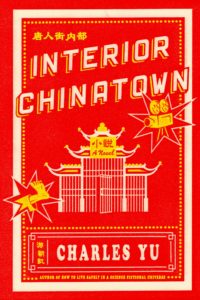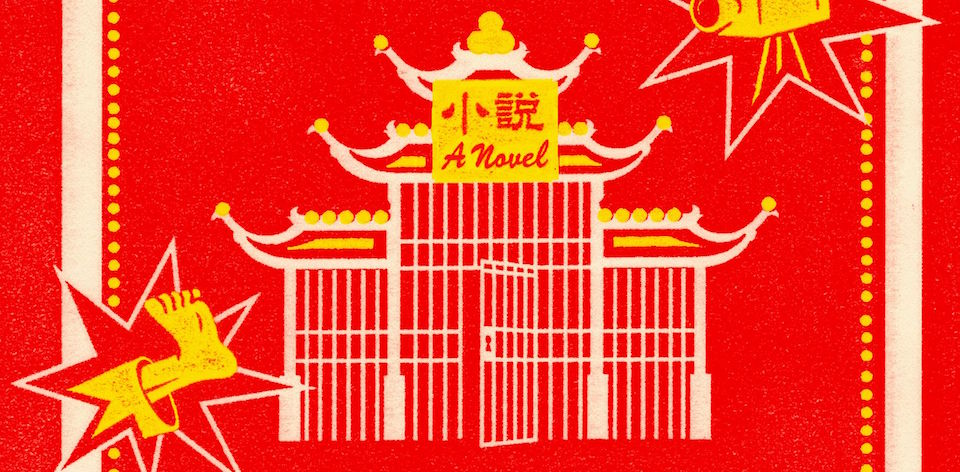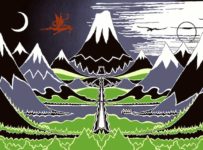INT. CHINATOWN – DAY
Ever since you were a boy, you’ve been fascinated with Asian pop culture. Starting with films starring the Kung Fu Guy, you progress to classics, arthouse and eventual became a festival fan. You recognise the tropes but go along with them because that’s what’s available. Cut to: 2020. Charles Yu releases a clever novel that dissects all the things.
DISSOLVE TO:

INTERIOR CHINATOWN is not your average book. This is something you might expect from the author of How to Live Safely in a Science Fictional Universe, which contains a book-within-a-book the lead obtained from his future self. Here Yu uses the conventions of the screenplay to explore how Asians are homogenously presented in Hollywood media.
Fuelled by his experience on television shows like HBO’s Westworld and FX’s Legion, Yu takes the marginalisation of Asian characters as a starting point for his story. Willis Wu, or as he’s more frequently referred to Generic Asian Man, is stuck playing background roles. This is not just true of Willis the character, as much of his life is depicted in the form of a screenplay where he is literally relegated a Generic Asian role. He aspires, of course, for the leading part of the Kung Fu Guy.
There’s two things that can turn into gimmicks really quickly: non-traditional prose forms and the ‘second person’ point of view. Yu uses both liberally: the whole thing is presented in the Courier font synonymous with scripts, and it switches between the second- and third-person narrative, as if the former were notes from Central Casting.
Yet INTERIOR CHINATOWN is funny. Not just funny but sharply satirical as well, careening in and out of weird cutaways, moments from a cop show (called Black and White after the ethnicity of its cast) and key fragments from Wu’s life. These maintain the screenplay format, although Yu uses longer descriptive passages to get into these vignettes.
Is the text a little repetitive at times? Perhaps a little, although having different Asian men from completely different countries living in a single room occupancy (or SRO) It all culminates in – yet even this plays into the expected conventions of the genre, doubling down on Yu’s point. Everyday microaggressions are part of the script of Asian American daily life. It all culminates in a grand courtroom scene, complete with speeches, the kind that seem to always solve historic racism on screen.
Even if you think you’re pretty woke, Yu cleverly weaves in historical and contemporary examples of how we continue to support this system. My wake-up moment was a quote Yu highlights from Erving Goffman: “When…an outsider happens upon a performance that was not meant for him… the performers will find themselves temporarily torn between two possible realities.” As an outsider who has crafted an Asia in Focus section, it’s a line that forced me to take a beat and check for context as an outsider.
In fact, INTERIOR CHINATOWN asks us to challenge the very fabric of the American creation myth, one where Asian involvement is often left out because it’s too challenging to fit the accepted narrative. For every Crazy Rich Asians or The Farewell, there’s still scores of other films that exhibit Yu’s exemplars of typecasting on and off screen. If Yu’s book helps us recognise and reject these offerings, then satire like this might not be as cutting.
2020 | US | WRITER: Charles Yu | PUBLISHER: Pantheon | LENGTH: 288 pages | RELEASE DATE: 28 January 2020




